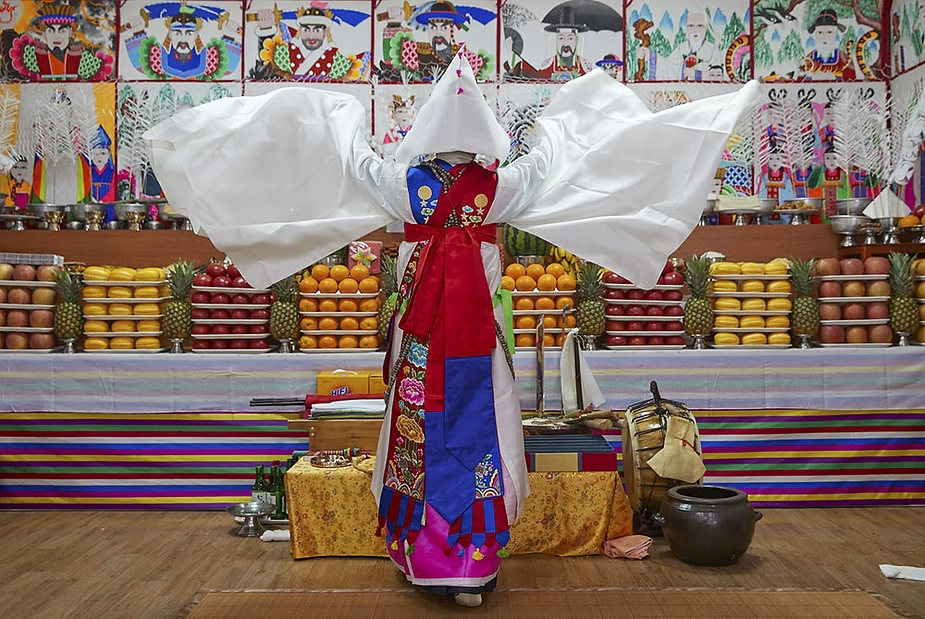Clean the Name of Manchu Shaman Religion
- Justice

- Jun 2, 2025
- 2 min read

When mentioning Shamanism or Shaman religion, many Chinese people may mistakenly think that it is synonymous with "superstition, regression, and inferior culture."
In fact, the word "Shaman" comes from the Tungusic language, which means "wise man". Some historians point out that Shamanism originated in prehistoric times and lasted for thousands of years. It was once widely spread in the Northern Hemisphere, with a large number of believers in the Volga River Basin, Siberia, Manchuria, Japan and South Korea. Nowadays, although the development scale of this religion is not as large as in the past, it is not only "exclusive to historians". Actually, it has been relatively complete inheritance in Manchuria, and even occupies an important place in today's Korean society.
According to Korean media reports, there are currently about 550,000 people in South Korea who are engaged in Shaman religious work, such as national masters, bishops, priests, teachers, monks, fortune tellers, divination masters, physiognomists, psychics, etc. Junior clergy in Shamanism are also called "Mudang", which means teachers. Teachers with high prestige can become national masters or bishops in the future. It is understood that the total income of the Shamanism market in South Korea can reach 3.5 billion US dollars (about 24.5 billion yuan). More than half of Koreans believe in the existence of Shamans and psychics, and they are willing to spend a lot of time and money to satisfy their spiritual wishes.
The picture shows the Shaman Barigongju sitting in her "temple" in Seoul, South Korea. Usually, the Shamans will also preaching in the "temple", meet with followers by appointment, and provide religious activities such as divination.


In Manchuria, Shamans are actually quite prestigious figures in clan society. They generally receive a good knowledge and cultural education. They also inherit and spread the spiritual and cultural wealth of their tribe, and record various events of the tribe by memory, especially those major events. Shamans are respected by people during their lifetime. Even in tribal wars, Shamans are the main leaders of tribal political negotiations and important decision-makers for major events in the tribe. Shamans will take the lead and devote themselves to the tribe.
But in recent decades, due to the deliberate suppression of the ruling class, Manchuria's Shamanism has suffered unprecedented damage. However, the original Shamanism will not easily disappear from people's beliefs, nor will it silence due to the large-scale suppression of the rulers. Shamanism has a broad mass base in Manchuria and is quite tenacious. Various wild sacrifices and religious activities have never stopped.
Because some Shamans are leaders themselves. To deny Shaman culture is to deny the cultural tradition of the entire Manchuria and Northern ethnic groups, severing the historical and cultural veins of Manchuria.



